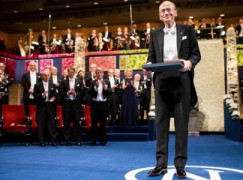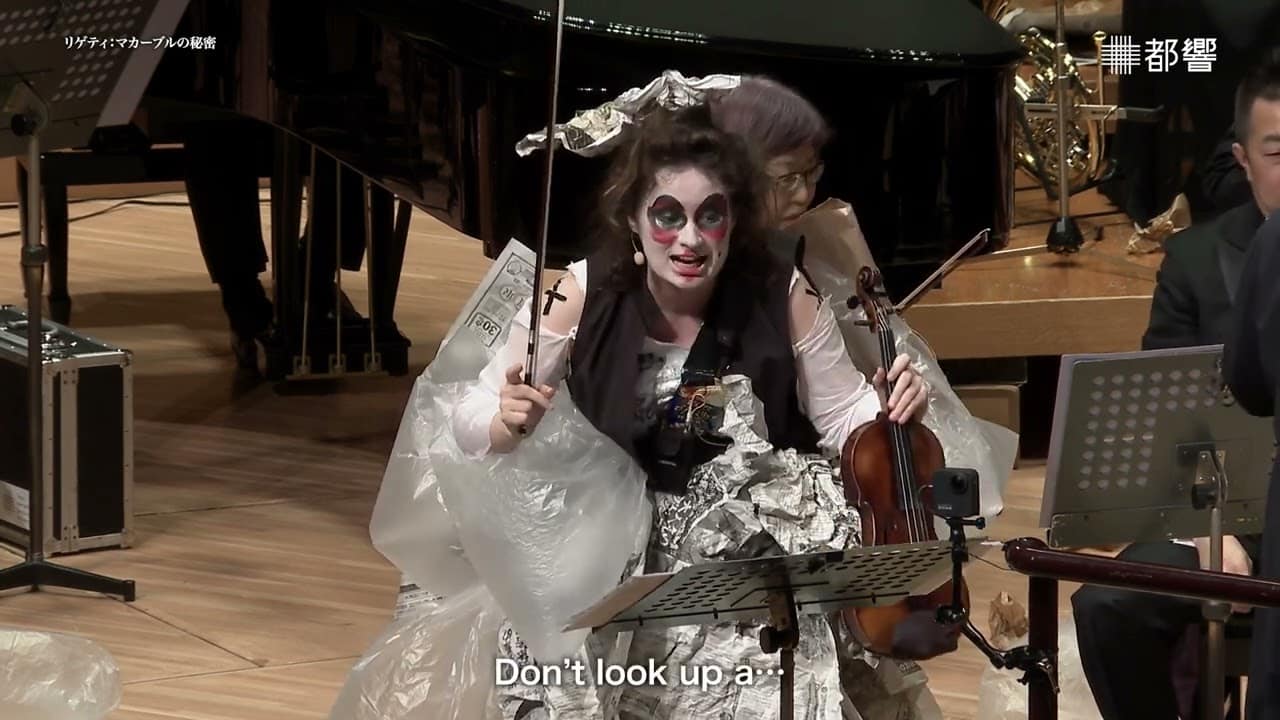Exclusive: Nobel Winner says ‘In the US, classical music is fundamentally a dying art’
mainIn October 2013, we reported that the winner of the Nobel Prize for Medicine, Thomas Südhof, had said that he owed it all to his bassoon teacher. On the basis of that reported comment, Dr Südhof has given an exclusive interview at Stanford to Ryan Romine of The Double Reed, discussing his own musical education and the importance of music in training the scientists of the future. With Ryan’s permission, we publish the following extracts:

Ryan Romine (RR): In comments you made in the Lancet in 2010 and others recently
posted by Norman Lebrecht of Slipped Disc, you credited your bassoon teacher with
teaching you valuable skills for your career. Can you expand on those earlier comments
about your musical training and its impact on your research skills?
Thomas Südhof (TS): The qualities I learned from my training in classical music, in
particular in bassoon, are multifarious and varied. Let me list a few. First, the value of disciplined
study, or repetitive learning, for creativity. You cannot be creative on a bassoon if
you don’t know it inside out, and you cannot be creative in science if you don’t have a deep
knowledge of the details. Second, the value of good mentorship. A good teacher challenges
and criticizes, but does not chastise or put down a student, no matter what. !ird, the role
of performance in a profession. As a musician, you practice for thousands of hours to play
for a few minutes—but when you play, you have to not only recapitulate the learned material,
you have to expand on it and you have to communicate it to the audience. In science, it is
basically the same thing—it is in the end a process which also depends on communicating
with an audience and accepting and responding to its feedback. Finally, I learned to value
traditions as a musician, but at the same time the importance of trying to transcend tradition.
The tradition is the basis that allows you to progress, the starting point, but it cannot
become a limitation, because then both in music and in science creativity and progress end.
*
RR: How do your children’s musical experiences in the US compare with your own childhood
musical experiences in Germany?
TS: I think the US offers terrific opportunities for young children to learn classical music. I only
wish there were more opportunities [for them] to go to concerts and to perform in concerts.
RR: Do you feel there is a cultural/temporal/geographical/neurological difference in
how art music is perceived and valued in the present society in comparison to when you
were growing up?
TS: Absolutely—in the US at the present time, classical music is fundamentally a dying art.
There are few people who are willing to pay for it and its importance is miniscule compared
to that of popular sports. Musicians earn a fraction of what even a mediocre athlete earns.
There is no vibrant musical culture at present—everything is geared towards being commercially
successful, not towards content. However, I think the same trend is observed in
Europe, and we need to accept this trend and look for components in popular culture that
are not boring (sometimes quite hard for me).
RR: Would you encourage your children to become musicians, scientists, both, neither?
TS: Only if they have a passion for it—it is a lot easier to have a stable life and to support a
family in other professions. Being a musician or a scientist is a sacrifice, and only worth it
if you truly enjoy it and consider it a privilege.
*
RR: The American education system has in the past few years invested heavily in STEM
(Science, Technology, Engineering, Mathematics) subjects, which place a significant
emphasis on your career field. Yet, your earlier published statements place significant
value on arts training. Do you see any way to integrate these two seemingly disparate
ideals?
TS: I personally think that training in the arts prepares a growing child just as well for a
scientific or technical career as [does] training in STEM subjects, if not better, because the
arts train a person in discipline, independent action, thinking, and in the need for attention
to detail without becoming a prisoner of that detail. I absolutely don’t think there is a need
for earlier math training—there is only a need for training the mind so it becomes fertile
for future learning.
*
RR: Do you still own/play a bassoon?
TS: I still own my bassoon—upstairs in a cupboard—but I don’t play it any more….
RR: Who is the maker?
TS: Hüller, a former East-German company.
*
RR: Thank you so much, Dr. Südhof, for your time and your thoughts. Bassoonists (and
musicians in general) worldwide are surely proud to count you as one of their own.
TS: I wish I could still be a bassoonist—it was a lot harder than being a scientist.





Comments